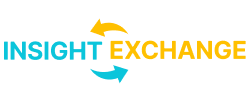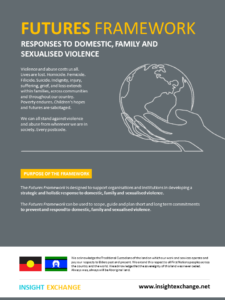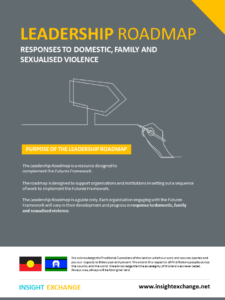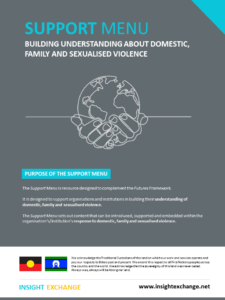Futures Framework
Violence and abuse costs us all. Lives are lost. Homicide. Femicide. Filicide. Suicide. Indignity, injury, suffering, grief, and loss extends within families, across communities and throughout our country. Poverty endures. Children's hopes and futures are sabotaged.
So, who benefits from the status quo? and who decides to keep things the same? We can all stand against violence and abuse from wherever we are in society.
View the Insight Exchange animation ‘Who Benefits? Who Decides?’ (4mins)
What we understand about domestic, family and sexualised violence informs how we respond; it influences how we design products, services and systems. It influences how we communicate about those products, services and systems.
Seeing possibilities: Imagine the difference it would make for victims-survivors if all workplaces, businesses, family, friends and specialist and statutory services were informed and ready to respond?
View the Insight Exchange animation ‘Seeing Possibilities’ (6mins)
The Futures Framework is designed to support organisations and institutions in developing a strategic and holistic response to domestic, family and sexualised violence.
The Futures Framework can be used to scope, guide and plan short and long term commitments to prevent and respond to domestic, family and sexualised violence.
The Leadership Roadmap is designed to support organisations and institutions in setting out a sequence of work to implement the Futures Framework.
The Leadership Roadmap is a guide only. Each organisation engaging with the Futures Framework will vary in their development and progress in response to domestic, family and sexualised violence.
The Support Menu is designed to support organisations and institutions in building their understanding of domestic, family and sexualised violence.
The Support Menu sets out content that can be introduced, supported and embedded within the organisation’s/institution’s response to domestic, family and sexualised violence.
Organisations and institutions do not operate in a vacuum. They depend on the actions of other organisations, institutions, people and systems to be able to function.
People experiencing domestic, family and sexualised violence are not just customers or employees; every individual has multiple roles and relies on multiple parts of the ecosystem for their wellbeing. The more disparity there is between different parts of the ecosystem, the tougher it is for victims to navigate.



